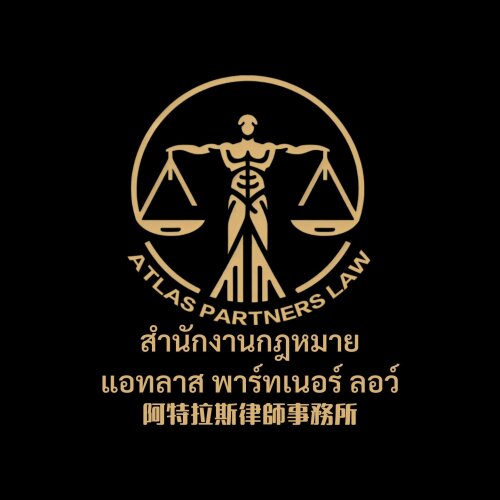ทนายความ ระหว่างประเทศ ที่ดีที่สุดใน เชียงใหม่
แบ่งปันความต้องการของคุณกับเรา รับการติดต่อจากสำนักงานกฎหมาย
ฟรี ใช้เวลา 2 นาที
รายชื่อทนายความที่ดีที่สุดใน เชียงใหม่, ประเทศไทย
คู่มือกฎหมายเขียนโดย SIAM LEGAL INTERNATIONAL:
- Defamation Laws in Thailand: Criminal Charges and Civil Suits
- The State of Thailand’s Long-Term Resident (LTR) Visa Program in 2025
- The Penalties Of Not Filing Your Income Tax Return As A Foreigner In Thailand
ประเทศไทย ระหว่างประเทศ คำถามทางกฎหมายที่ตอบโดยทนายความ
เรียกดู คำถามทางกฎหมาย 1 ข้อ ของเรา เกี่ยวกับ ระหว่างประเทศ ใน ประเทศไทย และอ่านคำตอบจากทนายความ หรือถามคำถามของคุณเองได้ฟรี.
- แอร์บีเอ็นบีในประเทศไทย
- ฉันวางแผนที่จะดำเนินธุรกิจให้เช่าระยะสั้นในประเทศไทย ฉันรวบรวมข้อมูลที่จำเป็นไว้บ้างและพยายามหาวิธีเข้าสู่ตลาด และฉันต้องการคำปรึกษาทางกฎหมายเกี่ยวกับประเด็นที่ค่อนข้างไม่ชัดเจน (ฉันจะจัดการทรัพย์สินที่เป็นไปตามเกณฑ์ยกเว้นใบอนุญาตโรงแรม [
-
คำตอบจากทนายความ โดย SORASAK LAWFIRM
คำตอบสั้นๆ สำหรับคำถามของท่าน 1) ในประเทศไทย ท่านสามารถประกอบธุรกิจได้ทั้งในรูปแบบบุคคลธรรมดา หรือจัดตั้งบริษัท อย่างไรก็ตาม หากเจ้าของเป็นชาวต่างชาติ อาจไม่สามารถดำเนินธุรกิจส่วนใหญ่ได้ เว้นแต่จะได้รับอนุมัติจากผู้ว่าราชการจังหวัดหรือหน่วยงานภายใต้ระเบียบของไทยปัจจุบัน บริษัทจำกัดต้องมีผู้ก่อตั้ง 3 คนในการจัดตั้ง2) ใช่ ประเทศไทยมีกฎระเบียบเฉพาะสำหรับชาวต่างชาติที่ประสงค์จะประกอบธุรกิจในประเทศไทยสำหรับรายละเอียดเพิ่มเติม กรุณาติดต่อเราโดยตรงที่ สำนักงานกฎหมายสรศักดิ์
อ่านคำตอบฉบับเต็ม
เกี่ยวกับกฎหมายระหว่างประเทศในเชียงใหม่, ประเทศไทย
เชียงใหม่เป็นส่วนหนึ่งของประเทศไทย ดังนั้นกฎหมายระหว่างประเทศที่บังคับใช้ในเมืองนี้ผ่านกฎหมายไทยและระเบียบราชการระดับประเทศ โดยไม่มีกฎหมายระหว่างประเทศฉบับเดียวที่ทำให้เชียงใหม่มีกฎหมายต่างหาก
กฎหมายระหว่างประเทศมักเข้ามาบังคับผ่านสนธิสัญญาที่ไทยให้สัตยาบัน และการบังคับใช้ในภาคปฏิบัติจะอาศัยการตีความร่วมกับกฎหมายภายใน เช่น ประมวลกฎหมายแพ่งและพาณิชย์และกฎหมายการค้าระหว่างประเทศ
ทำไมคุณอาจต้องการทนายความ
- ธุรกิจกับคู่ค้าต่างประเทศในเชียงใหม่ ต้องการสัญญาระหว่างประเทศที่คงความถูกต้องและคุ้มครองสิทธิ์ระหว่างภาคส่วน
- ข้อพิพาทการค้าระหว่างประเทศ เช่น เรื่องการชำระเงินหรือทรัพย์สินทางปัญญา มีความซับซ้อนทางกฎหมายและข้อกำหนดทางภาษี
- การยื่นขอวีหรือใบอนุญาตทำงานแก่คนต่างด้าว ซึ่งมีขั้นตอนละเอียดและข้อกำหนดสากลที่อิงกับกฎหมายไทย
- การโอนข้อมูลข้ามประเทศ มีความเสี่ยงด้านข้อมูลส่วนบุคคลที่ PDPA ควบคุมไว้
- คดีครอบครองทรัพย์ระหว่างประเทศ ต้องการการตีความกฎหมายระหว่างประเทศร่วมกับกฎหมายท้องถิ่น
- การขอความช่วยเหลือด้านกฎหมายลอจิสติกส์ระหว่างประเทศ เช่น กระบวนการีศาลข้ามแดนและการบังคับใช้คำตัดสิน
ภาพรวมกฎหมายท้องถิ่น
พระราชบัญญัติคนเข้าเมือง พ.ศ. 2522
กฎหมายนี้ควบคุมการเข้าออกและสถานะบุคคลต่างด้าว ที่ทำงาน อาศัยอยู่ หรือเยี่ยมชมเชียงใหม่
การปฏิบัติของเชียงใหม่สอดคล้องกับระเบียบของสำนักงานตรวจคนเข้าเมืองและหน่วยงานที่เกี่ยวข้อง เพื่อให้การพำนักเป็นไปตามกฎหมายและสัญชาติ
พระราชบัญญัติคุ้มครองข้อมูลส่วนบุคคล พ.ศ. 2562
PDPA กำหนดกรอบการประมวลผลข้อมูลส่วนบุคคลในกิจการระหว่างประเทศที่มีฐานข้อมูลในเชียงใหม่
โดยเฉพาะกรณีการโอนข้อมูลระหว่างไทยกับต่างประเทศ ต้องปฏิบัติตามข้อกำหนดการคุ้มครองข้อมูลและสิทธิของผู้เกี่ยวข้อง
ระเบียบปฏิบัติของสำนักงานตรวจคนเข้าเมืองเชียงใหม่
เชียงใหม่ปฏิบัติตามแนวทางปฏิบัติในการยื่นขอวีและใบอนุญาตทำงานของบุคคลต่างด้าวที่เข้ามาในจังหวัดนี้
ผู้พำนักในเชียงใหม่ควรตรวจสอบเอกสารที่จำเป็นและกำหนดเวลายื่นขอปรับสถานะกับสำนักงานตรวจคนเข้าเมือง
คำถามที่พบบ่อย
อะไรคือกฎหมายระหว่างประเทศที่ใช้งานในเชียงใหม่?
กฎหมายระหว่างประเทศถูกนำมาปรับใช้ผ่านกฎหมายไทยและสนธิสัญญาที่ไทยให้สัตยาบัน ทั้งนี้เชียงใหม่ปฏิบัติตามกฎหมายในระดับประเทศเช่นเดียวกับพื้นที่อื่นๆ
อย่างไรฉันจะเริ่มหาทนายความระหว่างประเทศในเชียงใหม่?
เริ่มจากค้นหาจากสำนักงานทนายความที่มีความเชี่ยวชาญด้านระหว่างประเทศในเชียงใหม่ และตรวจสอบประสบการณ์ในกรณีคล้ายคุณ
เมื่อไหร่ควรปรึกษาทนายความระหว่างประเทศ?
ควรปรึกษาเมื่อคุณเผชิญข้อพิพาทระหว่างประเทศ หรือเมื่อเริ่มทำสัญญาข้ามแดน เพื่อป้องกันข้อผิดพลาดที่อาจเกิดขึ้น
ที่ไหนฉันจะหาทนายความระหว่างประเทศที่เชื่อถือได้ในเชียงใหม่?
สถานที่เริ่มต้นคือสำนักงานทนายความที่มีโปรไฟล์ระหว่างประเทศ และควรตรวจสอบคำรับรองจากลูกค้าเดิม
ทำไม PDPA ถึงมีผลต่อการโอนข้อมูลระหว่างประเทศในเชียงใหม่?
PDPA คุมการประมวลผลข้อมูลส่วนบุคคล และการโอนข้อมูลระหว่างประเทศต้องสอดคล้องกับข้อกำหนดสิทธิและความปลอดภัย
สามารถจัดการคดีระหว่างประเทศออนไลน์จากเชียงใหม่ได้ไหม?
ได้ในบางกรณี เช่น คดีอธิบายการค้าระหว่างประเทศที่สามารถดำเนินผ่านการสื่อสารทางไกล และมีผู้แทนในพื้นที่
ควรคิดค่าธรรมเนียมทนายความระหว่างประเทศในเชียงใหม่อย่างไร?
โดยทั่วไปค่าธรรมเนียมแบ่งเป็นค่าปรึกษา ค่าทนายตามชั่วโมง และค่าใช้จ่ายในการดำเนินคดี ซึ่งขึ้นกับความซับซ้อน
อย่างไรระยะเวลาในการดำเนินคดีระหว่างประเทศในเชียงใหม่มักเป็น?
ระยะเวลาขึ้นกับชนิดคดีและความซับซ้อน โดยคดีทั่วไปอาจใช้หลายเดือนถึงหลายปี และมักมีขั้นตอนชัดเจน
อะไรคือคุณสมบัติที่ต้องมีสำหรับทนายระหว่างประเทศ?
ทนายต้องมีความเชี่ยวชาญด้านกฎหมายระหว่างประเทศ ประสบการณ์ในคดีที่เกี่ยวข้อง และความเข้าใจตลาดเชียงใหม่
อะไรคือความแตกต่างระหว่างทนายระหว่างประเทศกับที่ปรึกษากฎหมายท้องถิ่น?
ทนายระหว่างประเทศมุ่งประเด็นระหว่างประเทศและการบังคับใช้สนธิสัญญ ในขณะที่ที่ปรึกษากฎหมายท้องถิ่นเน้นกฎหมายไทยและบริบทเชียงใหม่
อย่างไรฉันจะเริ่มกระบวนการยื่นคำร้องหรือฟ้องระหว่างประเทศในเชียงใหม่?
เริ่มจากประเมินกรอบคำร้องกับทนาย ระบุเขตอำนาจศาล และยื่นเอกสารทางการที่จำเป็น ต่อมาทนายจะดำเนินการยื่นคำร้อง
ควรเตรียมเอกสารอะไรบ้างก่อนพบทนายที่เชียงใหม่?
เตรียมพาสปอร์ต ใบอนุญาตทำงาน/พำนัก สัญญาระหว่างประเทศ เอกสารทางการเงิน และหลักฐานพิสูจน์ข้อเท็จจริงของกรณี
ทรัพยากรเพิ่มเติม
- สำนักงานตรวจคนเข้าเมือง (Immigration Bureau) - immigration.go.th
- คณะกรรมการคุ้มครองข้อมูลส่วนบุคคล (CPDP) - cpdp.go.th
- ราชกิจจานุเบกษา - ratchakitcha.soc.go.th
ขั้นตอนถัดไป
- ประเมินสถานการณ์และเป้าหมายทางกฎหมายของคุณอย่างชัดเจน (1-3 วัน)
- ค้นหาทนายความระหว่างประเทศในเชียงใหม่ที่มีประสบการณ์ในกรณีของคุณ (1-2 สัปดาห์)
- นัดปรึกษาเบื้องต้นเพื่อยืนยันความเหมาะสมและขอประมาณการค่าใช้จ่าย (1-2 สัปดาห์)
- รวบรวมเอกสารหลักและรายละเอียดกรณีให้ทนายตรวจสอบ (2-7 วัน)
- รับคำแนะนำด้านกลยุทธ์และระยะเวลาโดยประมาณจากทนาย (1-2 สัปดาห์)
- ตกลงในสัญญาว่าจ้างและแต่งตั้งตัวแทนทางกฎหมาย (1-7 วัน)
- เริ่มกระบวนการทางกฎหมาย ทั้งในศาลไทยหรือกระบวนการระหว่างประเทศที่เกี่ยวข้อง (เวลาไม่แน่นอนขึ้นกับคดี)
Lawzana ช่วยคุณค้นหาทนายความและสำนักงานกฎหมายที่ดีที่สุด ใน เชียงใหม่ ผ่านรายชื่อผู้เชี่ยวชาญด้านกฎหมายที่มีคุณสมบัติเหมาะสมที่คัดสรรและตรวจสอบล่วงหน้า แพลตฟอร์มของเรานำเสนอการจัดอันดับและโปรไฟล์โดยละเอียดของทนายความและสำนักงานกฎหมาย ช่วยให้คุณเปรียบเทียบตามสาขากฎหมาย รวมถึง ระหว่างประเทศ ประสบการณ์ และความคิดเห็นของลูกค้า
แต่ละโปรไฟล์ประกอบด้วยคำอธิบายเกี่ยวกับสาขากฎหมายของสำนักงาน รีวิวจากลูกค้า สมาชิกในทีมและหุ้นส่วน ปีที่ก่อตั้ง ภาษาที่พูด ที่ตั้งสำนักงาน ข้อมูลการติดต่อ การมีตัวตนบนโซเชียลมีเดีย และบทความหรือแหล่งข้อมูลที่เผยแพร่ สำนักงานส่วนใหญ่บนแพลตฟอร์มของเราพูดภาษาอังกฤษและมีประสบการณ์ทั้งในเรื่องกฎหมายท้องถิ่นและระหว่างประเทศ
ขอใบเสนอราคาจากสำนักงานกฎหมายชั้นนำ ใน เชียงใหม่, ประเทศไทย — รวดเร็ว ปลอดภัย และไม่ยุ่งยาก
ข้อจำกัดความรับผิดชอบ:
ข้อมูลที่ให้ไว้ในหน้านี้มีวัตถุประสงค์เพื่อเป็นข้อมูลทั่วไปเท่านั้นและไม่ถือเป็นคำแนะนำทางกฎหมาย แม้ว่าเราจะพยายามตรวจสอบความถูกต้องและความเกี่ยวข้องของเนื้อหา แต่ข้อมูลทางกฎหมายอาจเปลี่ยนแปลงได้ตามกาลเวลา และการตีความกฎหมายอาจแตกต่างกันไป คุณควรปรึกษาผู้เชี่ยวชาญด้านกฎหมายที่มีคุณสมบัติเหมาะสมเพื่อขอคำแนะนำเฉพาะสำหรับสถานการณ์ของคุณเสมอ
เราปฏิเสธความรับผิดทั้งหมดสำหรับการกระทำที่ทำหรือไม่ทำตามเนื้อหาในหน้านี้ หากคุณเชื่อว่าข้อมูลใดไม่ถูกต้องหรือล้าสมัย โปรด contact us และเราจะตรวจสอบและแก้ไขตามความเหมาะสม











